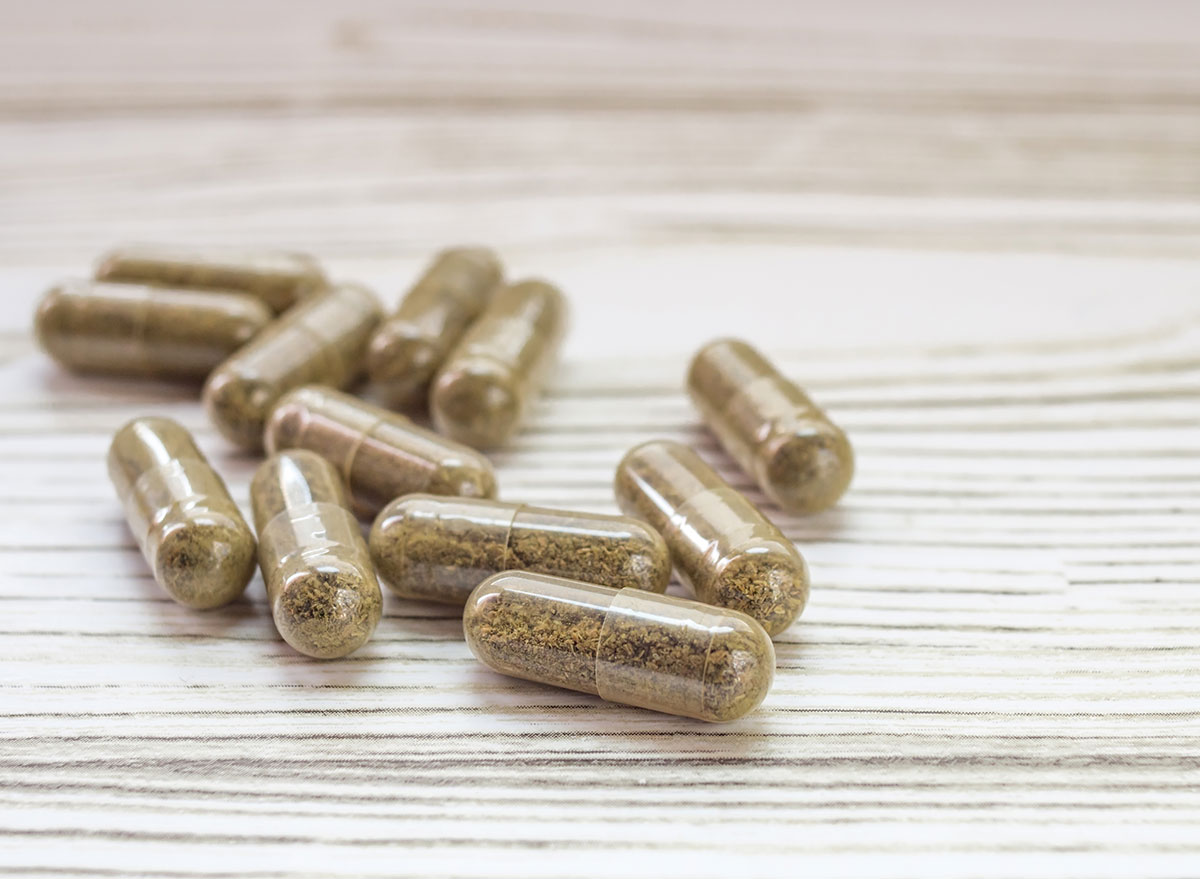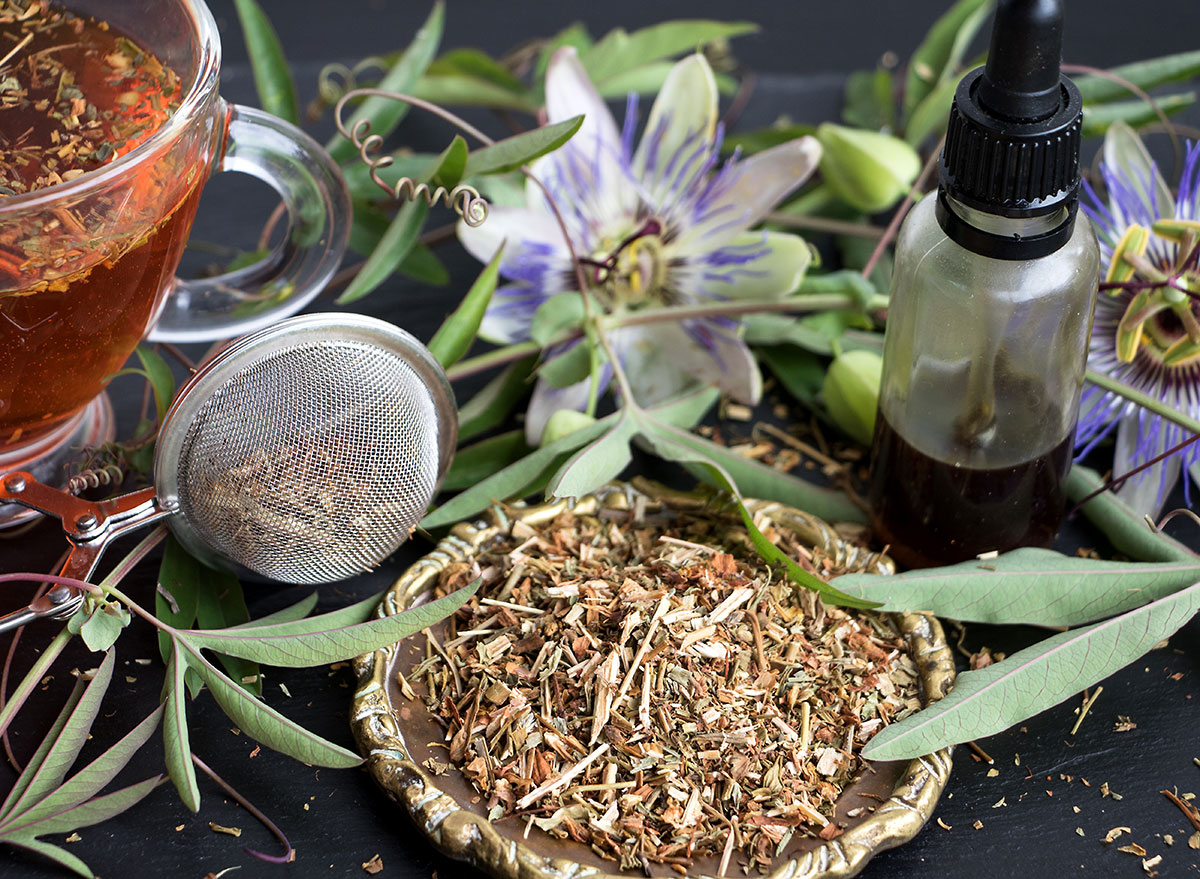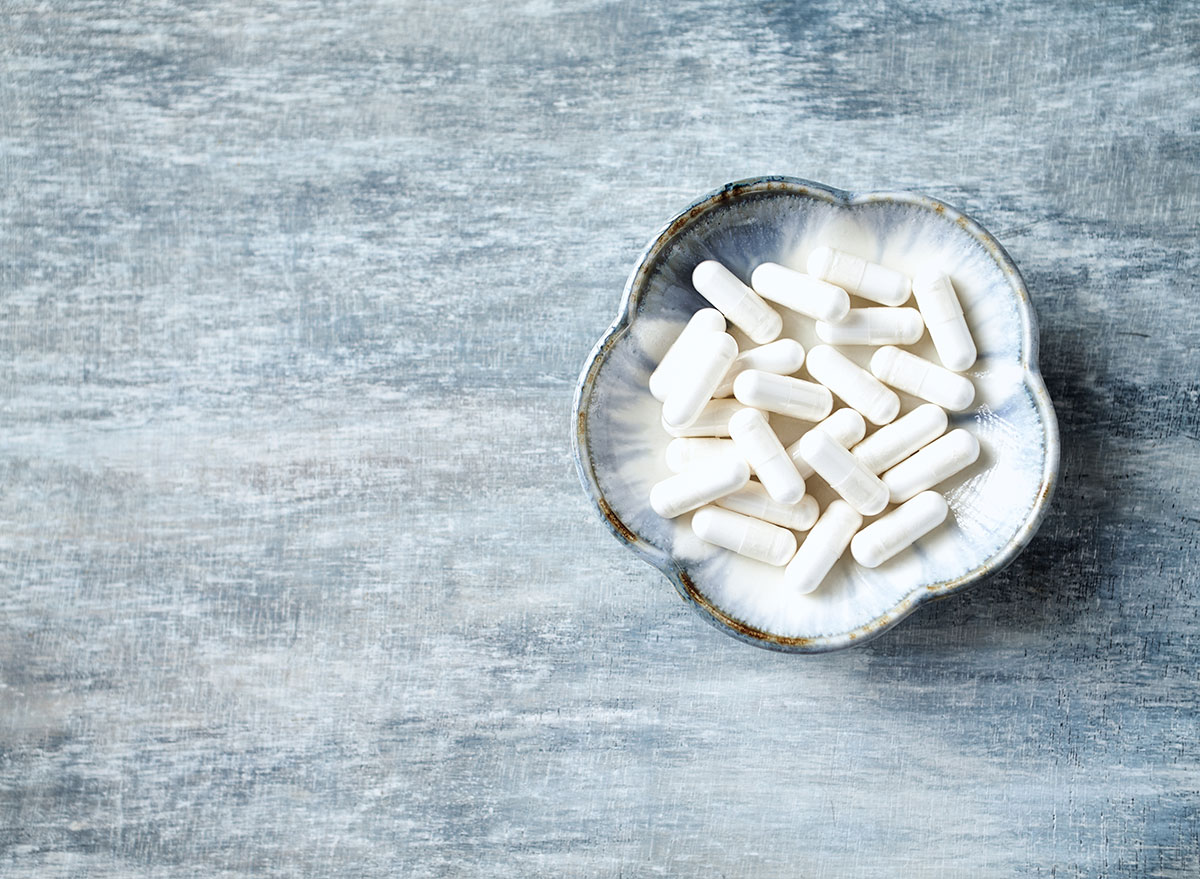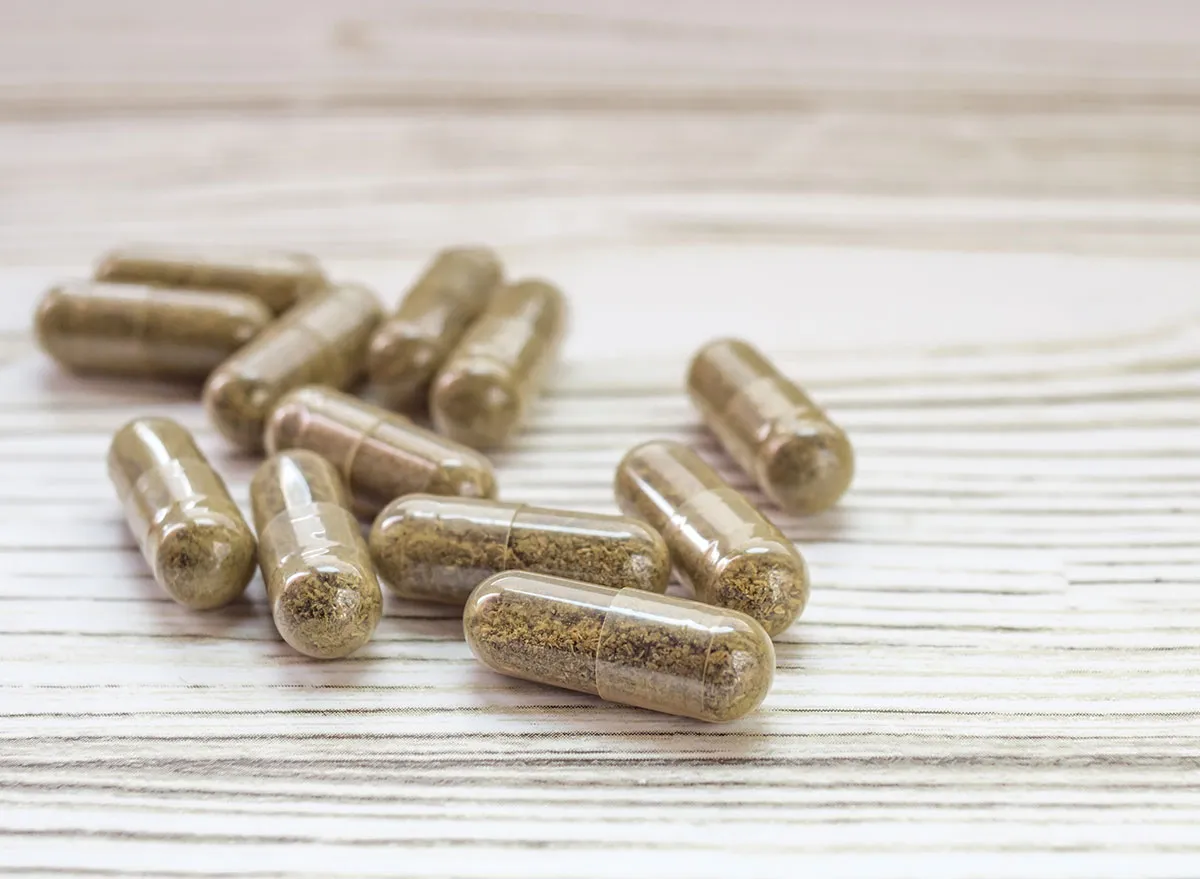Best Supplements to Take Before Bed, According to Dietitians

We all could use more/better/deeper sleep these days. And less stress? Sign us up. Enhanced muscle gains? Ditto. As you wind down for the day, you may want to consider these health-supportive and sleep-promoting supplements, say dietitians.
From melatonin to Ashwagandha, read on for the best research-backed supplements to take before bed. It goes without saying, but, before adding a new supplement to your routine, always consult with a trusted healthcare professional. Read on, and for more on how to eat healthy, don't miss 7 Healthiest Foods to Eat Right Now.
Melatonin

Let's get the most commonly recommended natural sleep supplement out of the way first. There's a good reason it's such a frequently advised remedy for sleep issues: "The body produces melatonin naturally, with levels dipping in the morning and rising in the evening to promote the body's sleep-wake cycles," says Kylie Ivanir, MS, RD, who runs a private practice called Within Nutrition. "Given melatonin's role in regulating the circadian rhythm and signaling the body it is time to sleep, supplements of this hormone can help facilitate the transition to sleep and promote consistent rest. This may be the case for individuals managing jet lag, insomnia, or wanting to improve sleep efficacy," she continues, pointing to this scientific overview.
READ MORE: Best Supplements for Sleep, According to Experts
Magnesium

Here's another heavy hitter in the world of sleep, which may also help with issues like anxiety.
"Magnesium comes in various formulations that can be beneficial in different ways. Magnesium citrate differs from the other chelated forms, such as magnesium bisglycinate and magnesium threonate, which are readily absorbed and work intracellularly," explains Ivanir. "Magnesium bisglycinate, in particular, can help with relaxation, sleep, and anxiety reduction. Therefore, it can be beneficial to take this form of magnesium at night before bedtime," she says, citing this study. You can also get magnesium from a variety of food sources like bananas, dark leafy greens, nuts, avocados, and beans.
Echoing Ivanir, Roxie M. Calloway, MS, RD says "[magnesium] is a natural relaxant and helps with sleep quality. Magnesium can also help relieve stress, as it can inhibit cortisol production and potentially lower blood pressure. She adds that men should have around 300 mg and women around 200 mg per day, though some people may opt to take more. "Magnesium has a lot of other health benefits as well. Magnesium is an essential mineral that plays a role in more than 300 different enzyme systems in the body. It helps the body use calcium and oxygen properly, and it helps build healthy bones and teeth," she further notes.
Passionflower

"Passionflower has been used in alternative medicine for insomnia; yet, recent research has shown that passionflower may in fact impact your sleep quantity and quality. Sleep quantity refers to the total time you've spent sleeping, and sleep quality refers to how well you've slept," says Kim Rose, RDN, CDCES, CNSC, LD. "In order to achieve a good night's rest, the perfect balance of sleep quantity and quality must be met. A 2017 animal study showed that passionflower decreased wakefulness and showed a significant increase in the total time spent sleeping. As it related to sleep quality, one human study showed that passionflower tea was helpful. Though these studies are small, and more human research is needed before definitive claims can be made, passionflower may hold promising results for capping off your night," she elaborates.
L-theanine

This supplement may be a boon if you're looking for better sleep. "L-theanine is an amino acid mostly found in the green tea plant. A small 2016 study showed that L-theanine may have anti-stress benefits," explains Rose. "This is important because stress may also impact our sleep. Another study conducted in China showed that negative types of stress may promote sleep disturbance and disrupt overall sleep quality. For as much stress as modern-day society gives, L-theanine seems to be a smart choice."
Protein Supplements

Wrapping up for the night? If you're all about gym life, it might be a good idea to take a protein supplement before you hit the hay. "For active individuals, it can be beneficial to take a slowly digested protein supplement before bed. When utilized over a period of time in conjunction with strength training, pre-sleep protein can help increase muscle mass and strength, promote recovery, and improve performance," says Ivanir, referencing this research. "This may be due in part to the overnight spike in growth hormone, which helps synthesize muscle mass."
Calloway zooms in on casein protein (from eggs) as the best type: "It's a good idea to consume casein protein before bedtime to promote muscle growth due to its slow digestion. Casein, unlike whey, is a very thick protein that breaks down slowly in the stomach and helps give your muscles nutrients (while promoting growth hormone secretion) while you're asleep," says Calloway. "It's a complete protein with all essential amino acids and has been shown to increase lean muscle mass. When this protein is consumed just before going to bed, it helps promote muscle protein synthesis while allowing your muscles to recover from workouts overnight."
Ashwagandha

It may very well be time to befriend this Ayurvedic herb with a large slew of applications.
"It is specifically known to produce a calming effect, which may be beneficial to sleep. While most studies on ashwagandha have been done on animals, one notable human study demonstrated that ashwagandha may very well improve sleep," says Rose. "In order to sleep well, you have to have a sense of calm. In this particular study, it was shown that ashwagandha did just that and improved sleep quality while decreasing the amount of time it takes to go from being fully awake to sleeping."
Cannabidiol

Hopping aboard the CBD train may have a positive impact on your sleep. "One sleep-promoting supplement I would recommend is cannabidiol or CBD. CBD, one of the main cannabinoids in the cannabis plant, interacts with the endocannabinoid system which helps regulate many processes in the body," says Ivanir. "While difficulty sleeping may be due to a variety of reasons, if it is caused by factors such as anxiety CBD may be beneficial. Research shows that CBD can have a calming effect, which can help reduce stress and improve sleep quality. Furthermore, if chronic pain is interrupting sleep, CBD has also been shown to help relieve pain and thereby aid in sleep. CBD may also interact with receptors in the brain that govern sleep-wake cycles, promoting sleep directly," she continues.








